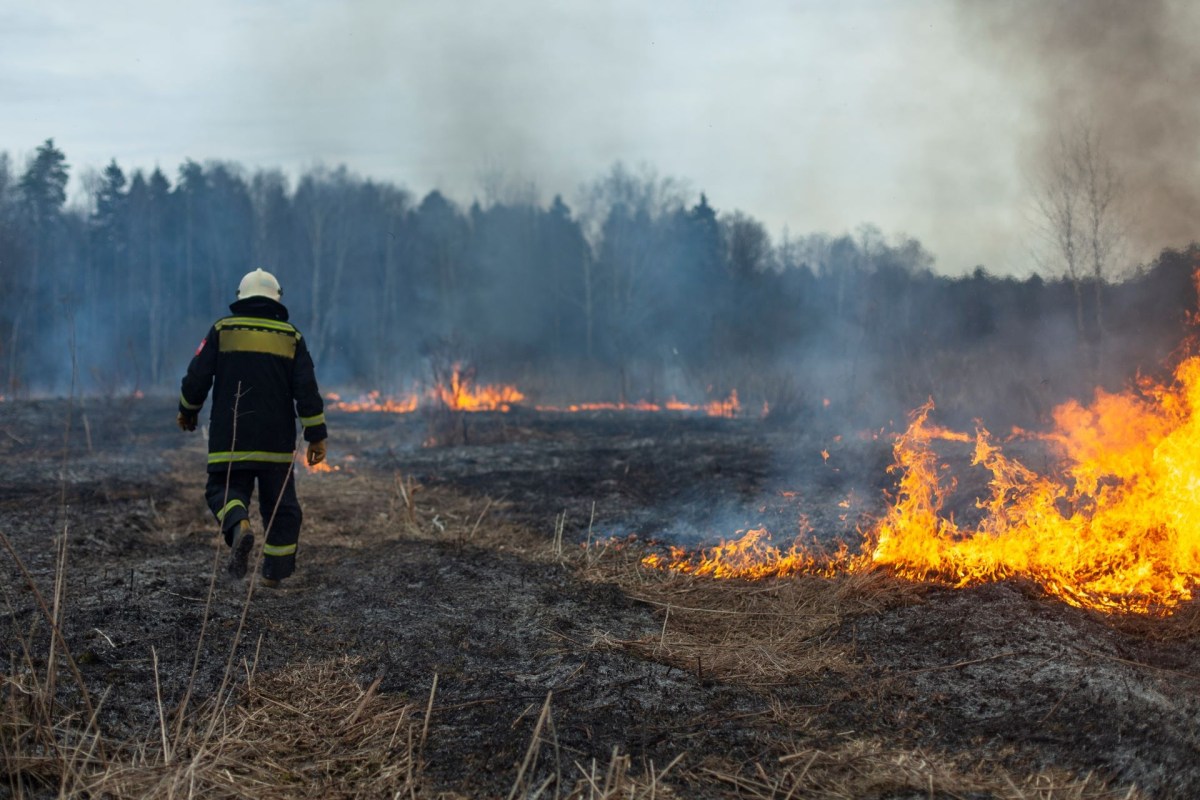This year's fire season has been severe in the eastern U.S., Grist reported in late April.
Normally, the western half of the country is more prone to serious wildfires. However, rising temperatures worldwide have made fires more severe across the nation, including in the east.
What's Happening
According to the EPA, wildfires have worsened on average in the past 40 years. The number of fires has stayed relatively stable, at about 70,000 per year, but the area being burned has significantly increased.
Grist reported that the eastern U.S. is having a particularly bad fire season, with 160 fires in southern New Jersey alone and 351,821 damaged acres of land nationwide as of late April.
Not only that, but fire season is getting longer.
"We're seeing this peak fire season that was confined to about a two- to three-month period extending into a four- to five-month period," Greg McLaughlin, administrator and chief of the New Jersey Forest Fire Service, told WHYY News.
He explained that his organization is beginning to see fires in February instead of mid-March, and that they continue until June or July instead of ending in May.
These changes have been attributed to the Earth's increasing temperature. Wildfires thrive in hot, dry weather, when there are many dried-out plants to fuel them.
Why do more wildfires matter?
Grist reported in late April that no humans had died yet from wildfires this year in the U.S. However, they had already caused property damage and loss of biodiversity.
One of the worst effects, however, may be the smoke. Grist explained that recent studies link wildfire smoke exposure to severe health conditions, including premature birth.
Smoke from a large wildfire can spread over multiple counties or even states, causing poor air quality across a wide area. As fire seasons in the U.S. become more severe, more people will suffer unhealthy levels of exposure to this dangerous air pollution.
What's being done about the health risk?
According to Grist, researchers at University of California, Davis have received funding to take a closer look at the effects of wildfire smoke. More research will help officials create appropriate policy and healthcare providers treat related conditions.
Meanwhile, individuals can help with fire prevention by being cautious. Most fires are started by human activity, including discarded cigarettes and unattended campfires.
When using a flame for any reason, keep fire safety materials nearby, and always have an adult watching the fire.
Join our free newsletter for cool news and cool tips that make it easy to help yourself while helping the planet.









